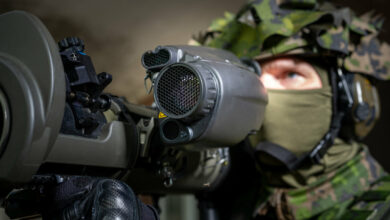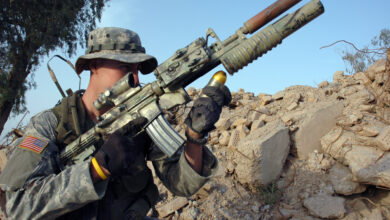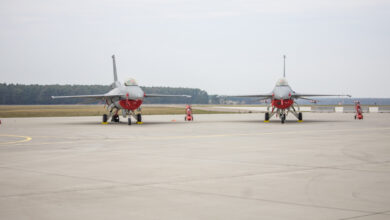Denmark suspends arms sales to Saudi Arabia over Yemen war, Khashoggi murder
Denmark’s foreign minister said Thursday, November 22 that the country will suspend exports of military equipment to Saudi Arabia due to concerns over the situation in Yemen and the murder of dissident Saudi journalist Jamal Khashoggi.
“In view of the continuing worrying situation in Yemen, the case of the Saudi journalist Jamal Khashoggi and recent discussions among the E.U. foreign ministers, I have decided Denmark will suspend the export approval of arms to Saudi Arabia,” Foreign Minister Anders Samuelsen tweeted.
“Denmark already has very restrictive practices in this area, but I hope that the Danish decision can create further momentum and get more E.U. countries to support tight implementation of the E.U.’s regulatory framework in this area,” the foreign ministry said in a statement.
The foreign ministry is a consultative party in decisions to grant permits for Danish companies to export military equipment. The National Police are responsible for deciding arms permits, while the Danish Enterprise Agency issues dual-use export permits.
Two export licenses were issued last year, according to Denmark’s Justice Ministry website.
The Information, a Danish newspaper, reported in June 2017 that Denmark sold technology to Saudi Arabia and other Gulf states could allow them to monitor critics.
According to the report, BAE Systems Applied Intelligence, a subsidiary of the U.K.’s BAE Systems, sold the equipment with the approval of the Danish government. The company sold technology that allowed “IP surveillance and data analysis for use in national security and investigation of serious crimes,” the newspaper said.
Denmark is the latest country to review its exports to the kingdom as international attention focuses on Yemen prompted by the October murder of Khashoggi in the Saudi consulate in Istanbul and warnings that the humanitarian situation for millions of Yemenis could worsen.
Germany on Tuesday bowed to pressure to halt arms sales to Saudi Arabia and cancelled a deal for the delivery of 20 warships. Germany’s arms exports to Saudi Arabia topped $105 million last year.
On November 9, Norway said it would freeze all defense material export licenses to Saudi Arabia, including those for dual-use items.
But some countries have stuck by the kingdom rather than use lucrative arms deals. In September, Spain said it will go ahead with the delivery of 400 laser-guided bombs to Saudi Arabia, after earlier saying it would block the sale. The u-turn came amid concerns that cancellation of the deal could have jeopardized a €1.8 billion order of five Corvette warships.
U.S. President Donald Trump spoke out Tuesday in support of Saudi Arabia, citing Riyadh’s weapons purchases and support for the administration’s campaign against rival Iran.
“We may never know all of the facts surrounding the murder of Mr. Jamal Khashoggi,” Trump said in a statement issued by the White House.
“In any case, our relationship is with the Kingdom of Saudi Arabia. They have been a great ally in our very important fight against Iran. The United States intends to remain a steadfast partner of Saudi Arabia to ensure the interests of our country, Israel and all other partners in the region.”
Forces part of the coalition led by Saudi Arabia and the United Arab Emirates have lately renewed their advance on Yemen’s port city Hodeidah, prompting fears that the critical port will be cut off.
The alliance intervened in Yemen’s civil war in 2015 to back President Abd Rabbo Mansour Hadi’s government against the Iran-backed Houthi rebels.
The U.N. Yemen Envoy Martin Griffiths flew to the rebel-held capital Sana’a on Wednesday for talks on averting an all-out battle for the port.
The World Health Organisation says nearly 10,000 people – mostly civilians – have been killed in Yemen since the Saudi-led intervention began, but human rights groups believe the toll may be five times higher.
The World Food Programme says up to 14 million Yemenis are at risk of starvation.
Save the Children said on Wednesday that some 85,000 children under the age of five may have died of severe malnutrition or related diseases between March 2015 and this October.
Although Western governments have condemned civilian deaths in Yemen, they remain political and military backers of Saudi Arabia, which is a regional ally and spends billions of dollars on arms from France, the United Kingdom and the United States.
Riyadh has admitted that Saudi nationals, including those close to Crown Prince Mohammed bin Salman, were involved in Khashoggi’s murder and dismemberment, but insists that the crown prince was not aware.
Saudi Foreign Minister Adel al-Jubeir on Wednesday told the BBC calls for the crown prince to be held accountable for the killing were a “red line” and would not be tolerated.











